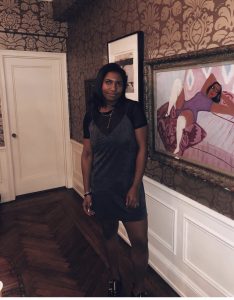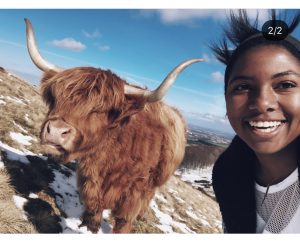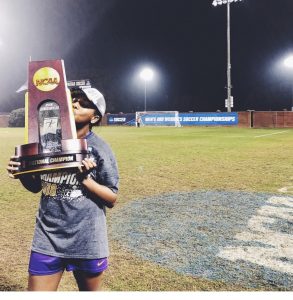
Grand Theft Auto V (GTA) immerses the user into a simulation of inner-city criminality based on many racial stereotypes. The safety of gameplay is juxtaposed with the ever present danger of the simulated circumstances. This game was intended to be as “authentic” as possible reflecting the mainstream perception of life in a criminalized environment. In particular, the opening scenes in GTA set the tone for a specific type of story wherein Franklin and Michael’s relationship is supposed to represent color blindness. However, the construction of the GTA world and the context of the character relationships is in itself a form of racism that insidiously denies differences in opportunities based on race.
Franklin and Michael’s relationship is a representation of inequality. Michael is the white ex-con mentor teaching Franklin, a black amateur criminal, how to rise in the game in order to escape his current lifestyle. Franklin’s community is a portrayal of the stereotype of black bodies as dangerous linking their presence to heightened crime and undesirability. Furthermore, the ability to switch into different characters reifies the power differential between them. In GTA, you can be the white sociopath, the white ex-con, or the black hustler.
This game is created for young adult men. The main player avatars are men and there are racially charged differences in the power that each of them possesses. These characters also represent a form of masculinity that presents violence and aggression. As a black woman playing this game, it certainly did not feel to be made for me. The women in GTA are hypersexualized and marginalized to insignificant components of the plot.
GTA is at the intersection between race and technology. Specifically, there is great danger in reproducing medias that comply with a colorblind ideology. As we’ve discussed in this course, problematic racial stereotypes are often reified in digital forms. As a result, race ought not to be forgotten about in the digital world. As Newitz wrote in her critique of Avatar, “If we think of Avatar and its ilk as white fantasies about race, what kinds of patterns do we see emerging in these fantasies” (Newitz 2009)? I’d argue the colorblind ideology is the repeated pattern in these films, games and platforms implicating what we remember and forget about race in society. In GTA, Franklin and Michael are presented as friends but it is of crucial importance to recognize the underlying dynamics between them as a reproduction of problematic, race-dependent stereotypes.
Source: Newitz, “When Will White People Stop Making Movies Like Avatar?”


 The typical profile I prefer is someone who I have mutual friends with, is from a similar background, and I find attractive. As a result of two of these three conditions, most of the
The typical profile I prefer is someone who I have mutual friends with, is from a similar background, and I find attractive. As a result of two of these three conditions, most of the